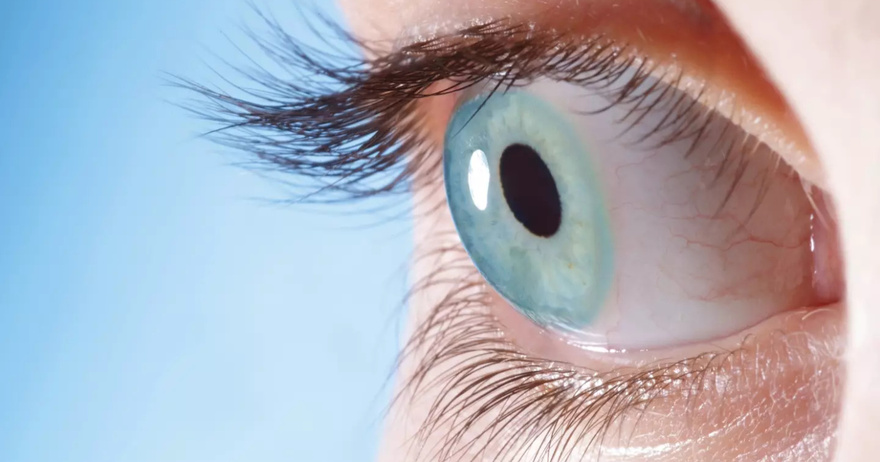Eye floaters are tiny dots or specks that move around in your sight, and you can often see them when you look at something bright, like a white sheet of paper or a clear blue sky.
Even though they can be a bit bothersome, they usually don’t block your vision. Sometimes, a big floater might create a small shadow in your sight, but this usually only happens in specific lighting.
A doctor has shared what you should do if you begin to notice eye floaters! Keep reading to learn more….
Types of Eye Floaters
Eye floaters move as you try to focus on them, appearing in various shapes such as:
Black or gray dots
Squiggly lines
Threadlike strands
Cobwebs
Rings
Once present, floaters usually don’t disappear completely but may become less noticeable over time.
Causes of Eye Floaters
Floaters are usually small bits of collagen, which is a type of protein found in the jelly-like substance called vitreous at the back of your eye. As you get older, these protein fibers can shrink and stick together, creating shadows on your retina. If you notice flashes of light, it might mean that the vitreous is separating from the retina. It’s really important to see a doctor right away if you notice new floaters, if they change a lot, or if you see flashes of light.
Floaters typically appear between ages 50 and 75. Factors increasing their likelihood include nearsightedness and cataract surgery. Rarely, floaters can result from:
Eye disease
Eye injury
Diabetic retinopathy
Crystal-like deposits in the vitreous
Eye tumors
Serious conditions associated with floaters include:
Detached retina
Torn retina
Vitreous hemorrhage
Inflamed vitreous or retina from infection or autoimmune conditions
Eye tumors
Sudden Floaters
Sudden eye floaters can be a sign of a serious issue, such as posterior vitreous detachment. If you experience sudden or ongoing floaters, it’s important to visit a doctor right away.
Looking at an eclipse or the sun without special glasses can lead to temporary floaters from solar retinopathy. You might feel symptoms like sore eyes, pain, light sensitivity, changes in vision, headaches, and watery eyes.
Usually, mild solar retinopathy gets better with time, but getting the right diagnosis is really important.
Anxiety, Stress, and Floaters
Anxiety and stress don’t cause floaters directly but can make you more aware of them. Floaters might also increase feelings of anxiety or depression, but more research is needed on this connection, per WebMD.
Natural Remedies for Eye Floaters
If floaters are mild, you might not need treatment and may learn to live with them. Here are some natural methods to manage floaters, according to an eye doctor:
Move the floaters: Shifting your gaze can move the floaters out of your field of vision.
Diet: A well-balanced diet rich in vitamin A (found in carrots, leafy greens, liver, fish, and dairy products) supports eye health.
Supplements: Consider vitamin A, omega-3 fatty acids, and zinc supplements, but consult your doctor first.
Eye exercises: Improve blood circulation in your eyes by moving them in circles or focusing on distant objects.
Quit smoking: Smoking affects blood circulation, potentially worsening floaters. Seek help to quit.
Manage eye strain: Reduce screen time and take breaks to prevent eye strain.
Filter bright lights: Use sunglasses outdoors and opt for low indoor lighting to reduce floater visibility.
Medical Treatments
For severe floaters, medical treatments include:
Laser Treatment
An eye doctor could use a laser to treat floaters, but this method has some risks and might not be the best choice for everyone.
Vitrectomy
If floaters are really bothering your vision, doctors might do a surgery called vitrectomy. This surgery takes out the jelly-like substance in your eye and replaces it with a saltwater solution or a bubble of oil or gas. Your eye will eventually replace this with its own fluids over time.
Takeaways
Eye floaters are usually not dangerous and are just a normal part of getting older. However, if they suddenly change or if you see flashes of light or feel pain in your eyes, you should definitely see a doctor.
Effective treatments and natural methods can help manage and reduce the impact of floaters on daily life.
Mom and 4 children killed in fiery crash while traveling to see husband
‘SNL’ Alum Cecily Strong Gives Birth, Welcomes 1st Baby With Fiance Jack at Age 41
Teen with Autism, Cerebral Palsy Critically Wounded After Being Shot by Idaho Police While Allegedly Wielding Knife
Mother’s Ultrasound Shows Baby ‘Blowing Bubbles’ Then Doctors Discovered What It Really Was
